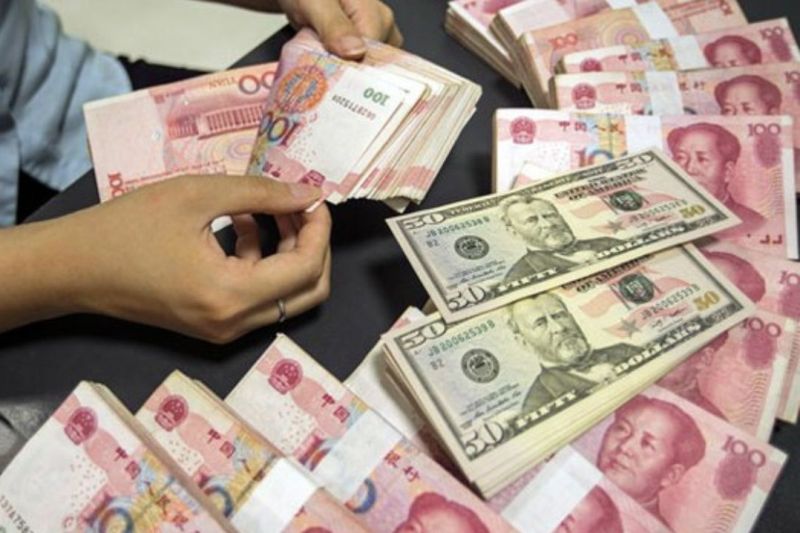The dollar has been the world’s most important currency since World War II; it is the most common reserve currency and the most widely used currency for international trade and other transactions worldwide.
The removal of the dollar from economic relations among countries and agreements to replace it with national currencies or other currencies in world trade is not an uncommon issue, but in recent years the process has intensified due to the measures of the US administration under Trump and Biden. In fact, political tensions between Washington and other countries have tarnished credibility of the US dollar in international markets.
Since 2014, China and Russia, the two superpowers of the international system, have sought to use national currencies to trade with each other and reduce their dependence on the US dollar. It was after the US administration imposed sanctions on Russia after the Crimean crisis that the two countries sought to take more serious steps to phase out the dollar. This trend was accelerated after Donald Trump imposed tariffs on hundreds of billions of dollars on Chinese goods. In 2014, Beijing and Moscow signed a three-year foreign exchange deal worth 150 billion yuan (24.5 billion dollars). Also during Chinese President Xi Jinping’s visit to Russia in June 2019, Moscow and Beijing agreed to replace the dollar with national currencies and develop payment mechanisms in national currencies to settle international accounts.
China and Russia also want to create a financial system outside the US supervision that will have sufficient authority and power in the world. The two countries are trying to accelerate their global trade through de-dollarization and using national currencies, along with major currencies such as the euro, as well as mitigating the negative effects of the current and possible US sanctions. In addition, they intend to trade with countries that have been sanctioned by the United States by eliminating the dollar in world trade.
At the same time, improvement of relations between Russia and China in recent years have contributed to this trend. In the current situation, the two countries have reached a common understanding of the threat and international trade; holding joint strategic exercises and increasing trade and political exchanges between the two countries also promises stronger ties than ever before, which could guarantee the independence of Beijing and Moscow and be a warning for the United States. Therefore, strengthening of the bond between the two countries has accelerated the process of eliminating the dollar.
In addition, China’s major economic project, based on the “One Belt One Road” (OBOR), has boosted demand for the yuan in foreign exchange reserves due to the large number of countries involved in the project, which has accelerated the gradual elimination of the dollar.
But what are the consequences of the phasing out of the dollar; the gradual elimination of the dollar has dire political and economic consequences for the United States. Various countries have been affected by oppressive US sanctions; both the sanctioned countries and the countries that had good economic relations with the sanctioned countries. With the elimination of the dollar in trade between those countries, the impact of this powerful US political-economic lever is practically reduced, which is a big blow to the most important lever of the US foreign policy in recent years.
Also, by reducing the use of the dollar, the US dominance in world trade will decrease, and this country, as in the past, cannot impose huge fines on various companies under the pretext of their relationship with the sanctioned countries.
It is also possible that other countries and unions will join the process. China, Russia, India, Turkey and Iran are now trying to use more national currencies or alternative currencies to the dollar in their trade with other countries. Pakistan also makes its payments to Chinese companies in yuan, and the number of countries that reduce the dollar from their trade is expected to increase with the possible addition of the BRICS group.
In economic terms, the common use of the US dollar helps the administration to issue government bonds at a lower cost (meaning that it does not have to pay much interest to attract buyers, which is a big advantage for the country). It is worth noting that the Russian government has been steadily reducing its investment in the sector since May 2017 in response to White House sanctions.
The military power and superiority of the US dollar, which have been two important and influential factors in the exercise of the US domination, will be dealt a major blow with this process, and the US will decline with more speed.










0 Comments